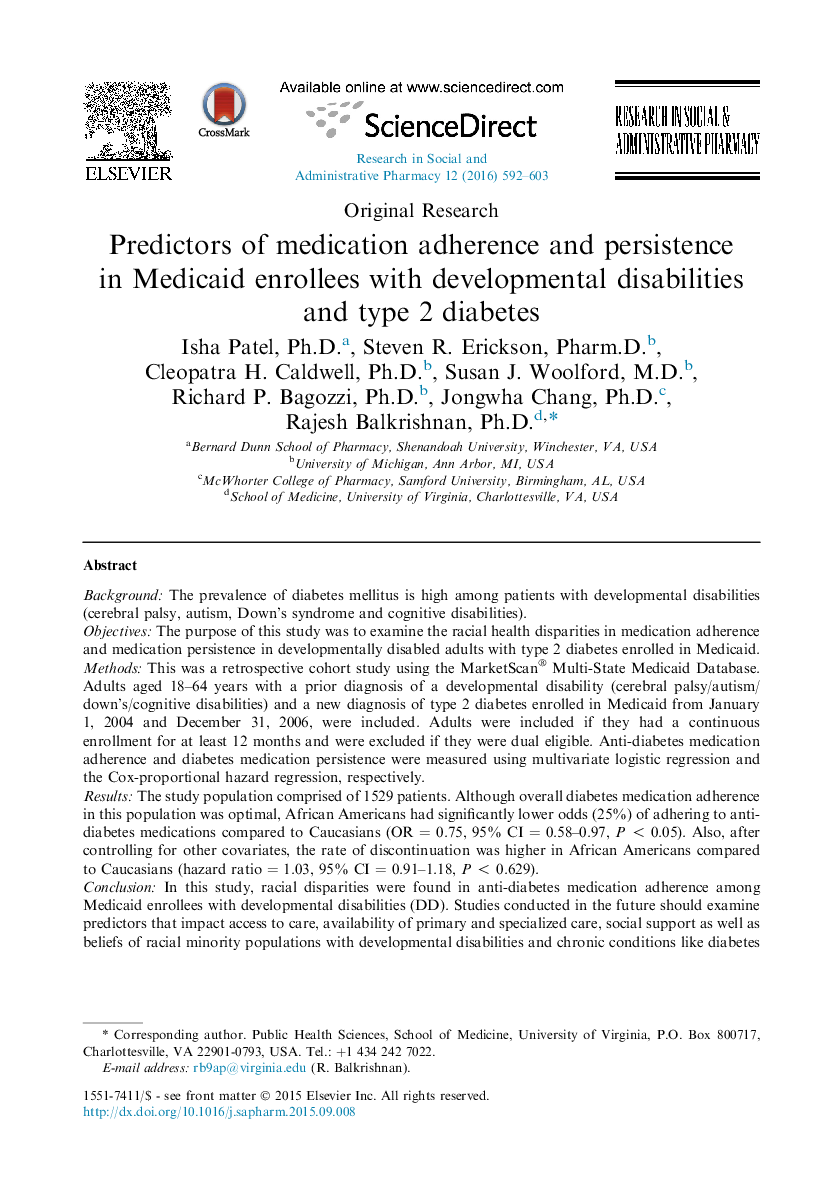| Article ID | Journal | Published Year | Pages | File Type |
|---|---|---|---|---|
| 2508207 | Research in Social and Administrative Pharmacy | 2016 | 12 Pages |
BackgroundThe prevalence of diabetes mellitus is high among patients with developmental disabilities (cerebral palsy, autism, Down's syndrome and cognitive disabilities).ObjectivesThe purpose of this study was to examine the racial health disparities in medication adherence and medication persistence in developmentally disabled adults with type 2 diabetes enrolled in Medicaid.MethodsThis was a retrospective cohort study using the MarketScan® Multi-State Medicaid Database. Adults aged 18–64 years with a prior diagnosis of a developmental disability (cerebral palsy/autism/down's/cognitive disabilities) and a new diagnosis of type 2 diabetes enrolled in Medicaid from January 1, 2004 and December 31, 2006, were included. Adults were included if they had a continuous enrollment for at least 12 months and were excluded if they were dual eligible. Anti-diabetes medication adherence and diabetes medication persistence were measured using multivariate logistic regression and the Cox-proportional hazard regression, respectively.ResultsThe study population comprised of 1529 patients. Although overall diabetes medication adherence in this population was optimal, African Americans had significantly lower odds (25%) of adhering to anti-diabetes medications compared to Caucasians (OR = 0.75, 95% CI = 0.58–0.97, P < 0.05). Also, after controlling for other covariates, the rate of discontinuation was higher in African Americans compared to Caucasians (hazard ratio = 1.03, 95% CI = 0.91–1.18, P < 0.629).ConclusionIn this study, racial disparities were found in anti-diabetes medication adherence among Medicaid enrollees with developmental disabilities (DD). Studies conducted in the future should examine predictors that impact access to care, availability of primary and specialized care, social support as well as beliefs of racial minority populations with developmental disabilities and chronic conditions like diabetes to optimize medication use outcomes in this especially vulnerable population.
